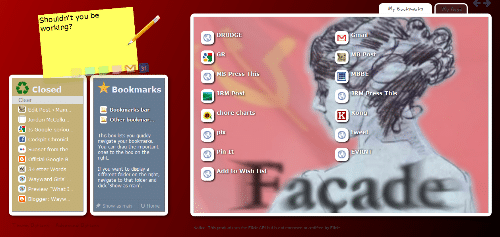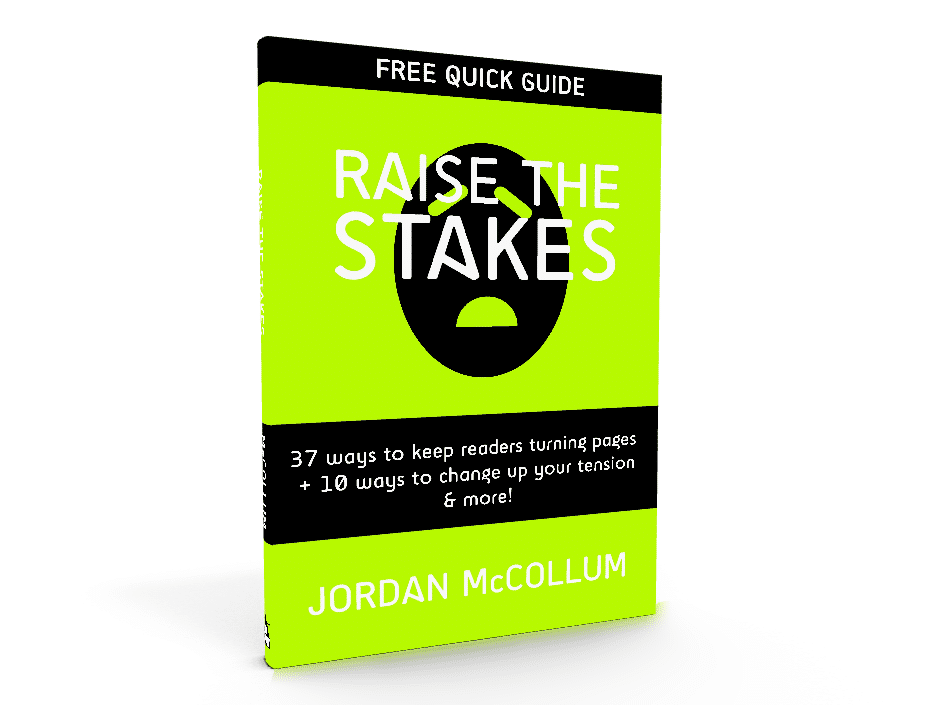Presented by Tristi Pinkston (blog)
The most important thing to keep in mind—as parents we have the divine right to receive divine inspiration about your family. If I make a suggestion that doesn’t fit within with your circumstance, you can be given ideas for how to make it all work.
Now, The Family: A Proclamation to the World came out in September 1994, and I had just been married a month previously. My husband and I used it as a template for what we wanted our family to be. Now, we’ve always been taught the traditional roles that father is to support family, mothers raise the family. The proclamation made this into not just “this is our goal” but “this is what we believe.”
When we make the decision to become wives and mothers, we know we’ve done the right thing. We know this choice will make us eternally happy, it has an eternal purpose. But then, we also start getting these ideas that since we’re a wife and mother we’ll never be anything else (because the world tells us motherhood is stupid. Mothers are schlumpy and worthless. [Oh. Man. I have a whole blog about rejecting the world’s view and finding fulfillment in motherhood. Don’t even get me started over here!]) We feel like we’re not making a contribution.
I put my writing aside when I got married because I believed I couldn’t be a good wife, a good mother and a writer. I was going to wait until my children were all grown up, and I was at peace with that because it was based on the Proclamation. But the little devil on my shoulder was saying: “Because you’re a mother, you shouldn’t have any other hobbies. You are a mother and that is so eternally important that you can never do anything else. If you take a single moment to yourself, you’re selfish and you’re bad.”
I hear “I want to be a writer, but I can’t ’cause I’m a mom” so often. You don’t have to put your dreams on hold just because you’re a parent.
I find it impossible to teach about writing without linking it to the spiritual because writing is spiritual. Creation of anything is a spiritual gift.
One of the missions of the church is to perfect the saints. How do we do that?
- Exercising our talents—let’s not bury them, eh?
- McConkie—each soul developed its talents as desired in first estate
- Embracing our talents and learning to use them is part of our missions on Earth.
- Some day we will be judged based on what we’ve done with the abilities the Lord has given us
- We can reach out and touch the hearts and souls of people—Proclaim the Gospel (another mission of the church)
- Hearts can be touched by arts in glorifying, edifying ways.
- Moroni 10:8: Deny not the gifts of God. Gift of tongues doesn’t just mean speaking. Extends to written word—form of communication
- Boyd K. Packer—b/c members with special gifts reach out with them, we learn some spiritual things very quickly
- Our talents are for consecration, but that doesn’t mean that you can’t make money on it.
- D&C 82:18: And all this for the benefit of the church of the living God, that every man may improve upon his talent, that every man may gain other talents, yea, even an hundred fold
- Thomas S Monson: the Lord’s storehouse includes the time, talents, resources, etc.
- See supplemental links on her blog
- M. Russell Ballard: “Find some time for yourself to cultivate your gifts and interest Pick one or two things that you would like to learn or do that will enrich your live, and make ties for them. Water cannot be drawn from an empty well, and if you are not setting aside a little time for what replenishes you, you will have less and less to give to others, even until your children.”
Personal struggles with motherhood—I love my children but it’s hard to be a mother [I hear ya!]. I was pondering this once when I had a clear image come to my mind: a puddle and a fountain. Both are sources of water, but they’re different. People walk through puddles and track the water out. Puddle gets smaller and smaller until it’s dry. A fountain has a core of strength in the center. The water shoots out, goes to a pool in the bottom, and is recycled. It’s constantly producing, not losing anything of itself from having given the water. As mothers, we need to be like fountains and not like puddles.
We need to feed ourselves the things that we need spiritually, socially, physically, etc., so that when people come to us seeking water, we’re not depleted. If we persist in being puddles, our effectiveness to Him is diminished.
Calls up Keith Fisher—talk to me about “Dad Guilt.”
You go to work—that is your divine responsibility. Providing for the family is tied to a man’s self-esteem.
Keith: Most men feel that what they do is who they are.
When you do something that may or may not make you money for the family, do you ever feel guilty about that? Do men take a writing hobby and feel as guilty about it as women??
Keith: Oh, of course, yeah. There are times when I should be on a Daddy Daughter date and I’m editing.
Just wanted to double check that this applies to the men, too.
Other guy, Randy: I came in here specifically because of that.
Men need to have the same sources of renewal as women do. While their stresses are different—stressing about providing for family—they need to understand it’s okay for them to do something for them, too. We need a personal space for ourselves so we can give our best to our families.
Keep your priorities straight: As you immerse yourself in your writing, you are going to want to stay immersed in your writing. Your children will need things—we must keep in mind that the family is the most important thing.
At the same time, there are boundaries we can establish with our families to show that we need a little time—true needs vs. things that can be put off till later. The Spirit will dictate which is which.
M. Russell Ballard:
There is no one perfect way to be a good mother. Each situation is unique. Each mother has different challenges, different skills and abilities, and certainly different children. The choice is different and unique for each mother and each family. Many are able to be “full-time moms,” at least during the most formative years of their children’s lives, and many others would like to be. Some may have to work part-or full-time; some may work at home; some may divide their lives into periods of home and family and work. What matters is that a mother loves her children deeply and, in keeping with the devotion she has for God and her husband, prioritizes them above all else.
At the same time, we have to balance this—I have seen good women become very focused on what they want to accomplish and they pull away from the Spirit. As Dallin H. Oaks said:
By the same token, a woman’s righteous and appropriate desires to grow, to develop and to magnify her talents—desires strongly reinforced by current feminist teachings—also have their extreme manifestations, which can lead to attempts to preempt priesthood leadership, to the advocacy of ideas out of harmony with Church doctrine, or even to the abandonment of family responsibilities.
Gordon B. Hinckley pleaded that we work at our responsibilities as parents as if everything in life counted on it. Because in fact, everything in life does count on it.
About a year ago, I sat down and analyze my mothering. I realized I was micromanaging everything. I thought I had to be in control or there would be no control. I was doing things for my kids that I didn’t need to (and vice versa). Transferring some of her responsibilities to her kids—laundry, dishes, other chores. (AND it’s okay if things aren’t done “right.”)
We have a lot of jobs as parents, but are these among them?
- forget to educate ourselves as we educate them
- forget to feed ourselves when we feed them
- sacrifice health, sleep and sanity because we do this for them
- make all their decisions for them
- pour milk for our 10 year old
What to do!
[Can you tell I’m excited to see practical application?]
First thing we’re going to do:
Sit down and think about our kids. What are we doing for them that they could be doing for themselves? What do we need to do for them that maybe we’re not?
I asked my kids: “What do you need from me?” Every single response had to do with taking time for them. I realized I hadn’t been emotionally giving of myself to my children. I had to take down my emotional wall and become vulnerable—but you can’t have those walls with your kids. Must be emotionally available.
Second thing: take a daily schedule and chart out time they’re otherwise occupied that week: school, nap, playdate, fave show. 15 min chunks. You can have your kids watch shows of value that you can let your children watch for certain times of the day without guilt.
Think about your time—get up earlier? Stay up later? (her time is 10 PM – 2 AM). Candace E. Salima gets up at 4 AM to write. Sometimes we can do with a little less sleep. If you hold down full time jobs, sometimes that’s our only writing time.
Don’t feel guilty if you can’t get everything done that you want to. Your house doesn’t have to sparkle. Your family doesn’t care what dinner as as long as it’s hot. I advocate make-ahead freezer meals.
Rearrange the furniture so your computer is in the flow of traffic—this prevent fights. Learn how to write with chaos. Be accessible to your children so they don’t feel neglected.
Get Ziploc containers with snap-on lids. Every other day, fill them with snacks, and stack them in fridge. Get sippies and fill them with water. Make a whole loaf of sandwiches and put them in the bread bag. Your child comes to you during your writing time—you say, “You can have one of your SPECIAL snack bowls!” Put it on his level, in containers he can open and access.
Older kids can help younger kids, too. Kids feel validated and get what they need.
If you’re not writing, but in a quiet time (driving, standing in line, etc.), use it to think of the next time you’ll write. Think through your next scene, plot (this happened with her new release, Agent in Old Lace [read my review!]).
Find ways to work writing into her life. As you think about this, you will be given ideas for how to work them into your own system. You will be given strength in your own parenting. As you keep the family as your priority, your time with them will improve. Your experiences will improve. But don’t turn your back on your writing. There are some people for whom this is not their time and their season, but the fact that you’re here [at the conference] says that your time is now. Heavenly Father knows us and has our interests and our children’s interests at heart. As we go to Him for help, you will have ideas flow into your mind—organizational ideas she’s had.
You are a steward over these spirits, but also over yourself.
About the conference: LDStorymakers is a writing contest geared to LDS writers. The conference covers both the niche, regional publishers that cater to the LDS market as well as national publishers.



 .)
.)
 #1, first and foremost, most of all: sit down and write. Just do it. Whether you feel like it or not, whether you are inspired or not. I’m not one of those “if you’re ‘really’ a writer you must pound out 8000 words a day even if it’s like drawing blood from a stone using your eyelashes” people, but seriously, if you don’t sit down to write, it won’t get done.
#1, first and foremost, most of all: sit down and write. Just do it. Whether you feel like it or not, whether you are inspired or not. I’m not one of those “if you’re ‘really’ a writer you must pound out 8000 words a day even if it’s like drawing blood from a stone using your eyelashes” people, but seriously, if you don’t sit down to write, it won’t get done. Finally, in case you’ve forgotten, I highly recommend plotting in advance. That way, you seldom spend three weeks pondering where your characters will go next and what they’ll do when they get there, and how on earth you’re going to spend 50,000 words getting from plot point 1 to plot point 2. (And also, we have a
Finally, in case you’ve forgotten, I highly recommend plotting in advance. That way, you seldom spend three weeks pondering where your characters will go next and what they’ll do when they get there, and how on earth you’re going to spend 50,000 words getting from plot point 1 to plot point 2. (And also, we have a  But man, when that idea strikes, it’s hard to make myself do the normal day-to-day, keeping-the-house-clean, being-a-mom stuff. All I want to do is write, and yet no matter how fast I write (my record is 5000 words in a day), it’s not fast enough. The rest of the book stretches out in front of me, scenes and lines and snippets that threaten to slip away before I can get there. So I race on.
But man, when that idea strikes, it’s hard to make myself do the normal day-to-day, keeping-the-house-clean, being-a-mom stuff. All I want to do is write, and yet no matter how fast I write (my record is 5000 words in a day), it’s not fast enough. The rest of the book stretches out in front of me, scenes and lines and snippets that threaten to slip away before I can get there. So I race on. For me, that’s stuff I can add later, in each layer of editing. In fact, I’m taking this week off drafting to go back to the first MS I wrote during this year to add in more of those descriptions and sensory information, since the second half of the book is rather bereft of those (silly me, thinking all the character and setting descriptions were established in the first half, and we wouldn’t need anymore after that!).
For me, that’s stuff I can add later, in each layer of editing. In fact, I’m taking this week off drafting to go back to the first MS I wrote during this year to add in more of those descriptions and sensory information, since the second half of the book is rather bereft of those (silly me, thinking all the character and setting descriptions were established in the first half, and we wouldn’t need anymore after that!). .
.